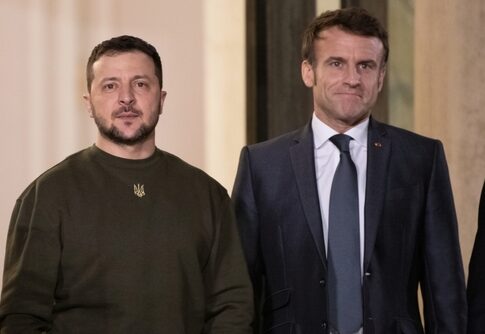President Donald Trump’s recent criticism of Ukrainian President Volodymyr Zelenskyy has not only strained relations between the two leaders but also sparked a heated debate on the state of democracy in Ukraine. Trump’s words carry significant weight in shaping public opinion and international policy. What are the challenges of holding elections during wartime?
Trump’s Criticism and Its Implications
Donald Trump’s recent statement calling Ukrainian President Volodymyr Zelenskyy a “dictator without elections” has sent shockwaves through the political landscape. The president’s words carry significant weight, potentially influencing conservative views on Ukraine and its leadership.
Trump’s criticism extends beyond Zelenskyy’s leadership, touching on broader issues of U.S. involvement in the Ukraine-Russia conflict. He claims that only his administration can negotiate an end to the war, asserting that the U.S. has spent excessively on the conflict.
🚨NEW: Marco Rubio claims that President Zelenskyy acted two-faced with him and President Trump and warns him not to hustle the United States.
RUBIO: "We discussed mineral rights with Zelenskyy and said we want to be in a joint venture with you because we think we need a… pic.twitter.com/Tczl8KEnwl
— Autism Capital 🧩 (@AutismCapital) February 21, 2025
Zelenskyy’s Response and Democratic Challenges
In response to Trump’s remarks, Zelenskyy suggested that the president is living in a “disinformation space.” This exchange highlights the complex nature of maintaining democratic processes during wartime.
Ukraine’s ability to hold elections has been significantly impacted by the ongoing conflict and martial law. The U.S. and Russia agree that Ukraine should hold elections, but the timing and logistics remain contentious issues.
It sounds like President Trump wants all the money we sent to Ukraine back.
"All the money that we've been sending to Ukraine — where is it?"
Zelenskyy must pay.
pic.twitter.com/8ZuqkqEXSn— George (@BehizyTweets) February 20, 2025
International Perspectives and Future Implications
The controversy surrounding Trump’s statements has drawn attention to the broader debate on Ukrainian democracy and international support. Vice President JD Vance has supported Trump’s criticism, further intensifying the discussion within conservative circles.
A proposed three-stage plan for peace includes a ceasefire, Ukrainian elections, and a peace deal. However, the implementation of such a plan faces significant challenges, including Russia’s demand for elections before signing any peace agreement.


